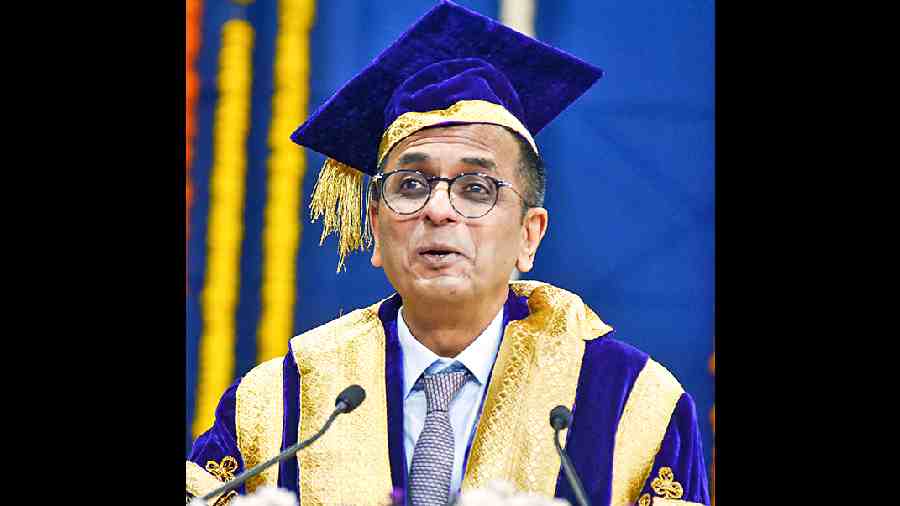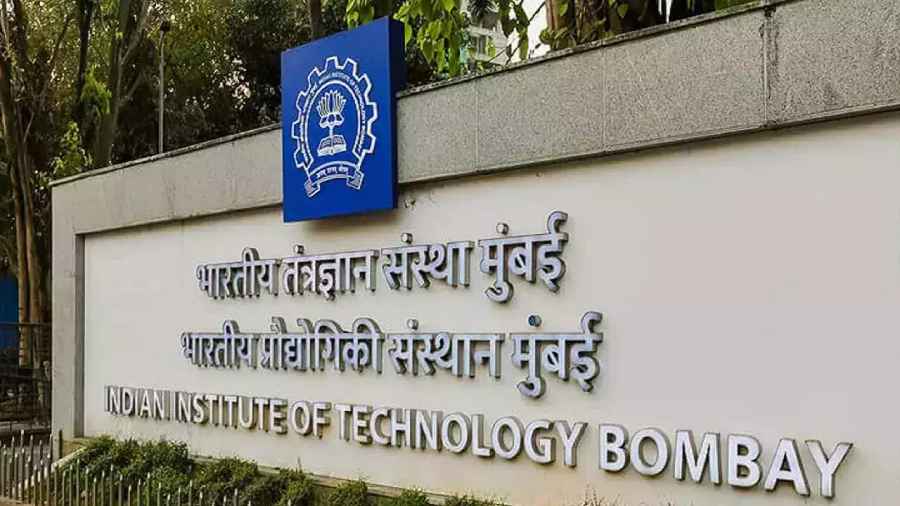Chief Justice of India D.Y. Chandrachud on Saturday said India needed institutions of empathy more than institutions of eminence, his remark coming close on the heels of the suicide of a Dalit student in IIT Bombay.
On February 12, Darshan Solanki, an IIT student from a Scheduled Caste, jumped off the roof of a seven-storey hostel. His friends have said he was upset at casteist taunts.
On Saturday, the CJI was speaking at the convocation of the NALSAR University of Law, Hyderabad. Justice Chandrachud said he had read about the IIT student’s suicide in a newspaper and was reminded of the suicide by a student from a Scheduled Tribe at the National Law University in Odisha last year.
“I have been wondering where our institutions are going wrong that students are forced to give up their precious lives,” Justice Chandrachud said.
“In these instances, students from marginalised communities committing suicide are becoming common. These numbers are not mere statistics. They are stories sometimes of centuries of struggle,” the CJI added.
He said educational institutions in India needed to acknowledge and recognise it as a problem in order to be able to address it. Empathy is an essential ingredient in law that separates a just society from an unjust one, he added.
“Empathy is not a luxury but a necessity. In our educational institutions today, we tend to focus a lot on excellence. We are taught our lives can be better if we excel in studies or in our professional lives. However, education can only be complete if we nurture the values of empathy and compassion,” Justice Chandrachud said.
The mental health of students is important. For this, academic leaders must be sensitive to the concerns of students, he added. When students leave their homes, they become the responsibility of educational institutions.
Justice Chandrachud said that Sukhadeo Thorat, former chairman of the University Grants Commission, had found a pattern in almost all the suicides.
“In the last 75 years of Independence, we have been focusing on creating institutions of eminence. But more than that, we need institutions of empathy,” the CJI said.
He said that when the Black Lives Matter movement gained momentum in the US after the murder of George Floyd in Minneapolis, nine judges of the Supreme Court there released a statement on the degradation of Black lives in the US. Similarly, judges in India have a crucial role in initiating a dialogue with society on such matters.
“Promoting equality must be the first step which educational institutions ought to take. Nurturing empathy can end the culture of eliteness and exclusion,” he said.
The CJI suggested a few steps.
The institutions need to stop allotment of hostels based on entrance marks, which leads to subjugation.
They should refrain from putting out a public list of marks along with social categories, mocking their English and physical appearance, stigmatising them as inefficient and reducing or stopping their fellowships.












